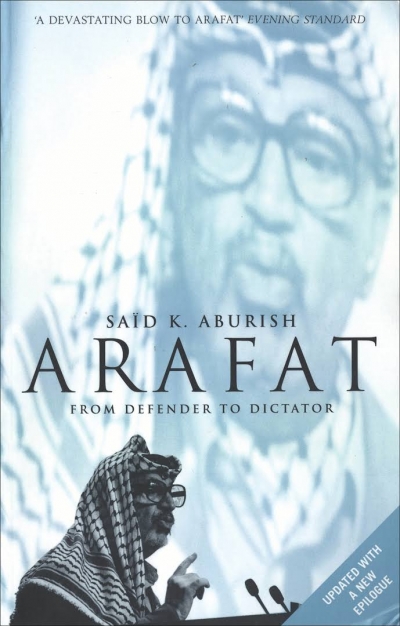



Arafat: From Defender to Dictator by Said K. Aburish. Pub: Bloomsbury Paperbacks, London, UK, 1999. Pp: 360. Pbk: £7.99
The Islamic Revolution in Iran in 1979 was a watershed in contemporary history. Those of us who are old enough to remember the time before the Revolution remember a period in which Muslims everywhere were subject to repression whenever they tried to establish Islam in its entirety...
Asserting his authority as supreme leader but exercising it with compassion, the Rahbar of the Islamic Revolution, Ayatullah Seyyed Ali Khamenei, brought the rising temperature of political debate in Iran under control during his khutbah on Friday, October 1.
Hamas, the Palestinian Islamic movement which is the most popular political group among Palestinians, and is also the leading critic and opponent of the ‘peace process’, suffered a major blow on August 30, when the Jordanian government closed down its offices in Amman.
With a new king in Morocco, and a recently elected president in Algeria, relations between the two North African neighbours - frosty at the best of times, over the western Saharan issue - have suddenly thawed.
Indonesia and Malaysia have many similarities. Each has a predominantly Muslim population. Indonesia has been under a dominant political party Golkar for 32 years, while Malaysia’s UMNO has been ruling the country for the past 42 years.
NATO announced the commitment of 25,000 more troops to the Balkans on May 24, taking the number of troops available to enter Kosova ‘when the time is right’ to 50,000. The announcement was presented as a sign of the west’s resolve to go into Kosova if necessary.
The war being waged against Islamic activism in the Arab world and Africa has taken an ominous new turn last month as the Arab League’s ‘anti-terrorism’ pact goes into force and plans are put into place for the adoption of a similar treaty by the member-states of the Organisation of African Unity (OAU).
The struggle of the Malay Bangsamoro people began almost 500 years ago, when Spain invaded the three independent Muslim principalities - the Sultanates of Sulu and Maguindanao, and the Confederated Sultanates of Ranao - which governed mainland Mindanao and the islands of Basilan, Sulu and Palawan. Mindanao and these islands today constitute what is known as the ‘southern Philippines.’ Islam had been here for some 200 years before the Spanish arrived.
History does not move in leaps and bounds. Most Muslims involved in Islamic activity, especially of the political party variety, want immediate results.

